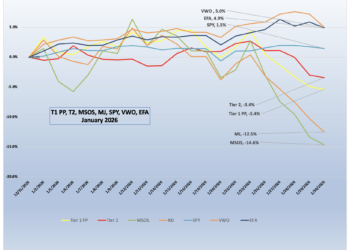Hemp producers are suing pro-legalization nonprofit MN is Ready for defamation just as legal adult use is about to be approved in the state. The lawsuit, which was filed in state court in Minnesota, is the latest in a series of disputes across the legal cannabis industry about what social equity should be and how hemp farmers fit into the business.
Minnesota found itself in a unique situation last summer when the state’s legislature legalized THC-infused edibles and beverages, but the catch was that producers had to use hemp-derived THC, rather than the cannabis plants that Minnesota allows in its medical program. This change came from an amendment to an omnibus bill, leaving some legislators surprised to learn what they had voted for.
About a year later, Minnesota appears poised to fully legalize adult use cannabis, with bills that have passed both the House and Senate and currently await consolidation before a final approval from both legislative bodies. Gov. Tim Walz (D) would then have to sign it into law, and he has publicly stated that he plans to pass it.
With pending changes to the state’s adult use market, prominent manufacturers and sellers of edibles and beverages with hemp-derived THC are arguing that the current plan for legalization would knee-cap their nascent businesses with new levels of regulation and taxation.
One of the plaintiffs, Steven Brown, chief executive of Nothing But Hemp and president of the Minnesota Cannabis Association, urged fellow members to speak out against Senate File 73. Brown argued in an online post that all hemp businesses would have to halt by July 1, 2024, if the adult-use bill passes as a potential result of the state creating a new licensing scheme for hemp producers that aligns with the process for adult-use cannabis.
“Please note this is an organized effort by Marijuana MSO (multistate operators) trying to kill hemp,” wrote Brown. “Marijuana operators want to kill hemp because we are a threat.”
Another plaintiff, Glenn McElfres and Todd Harris, who co-own THC beverage company PLIFT, submitted a letter of testimony against the bill’s social equity provisions on April 24.
“As drafted, SF73 classifies the young black men who were arrested for selling dime bags and the man who called the police on those young men as social equity applicants, so long as they lived in the same neighborhood,” wrote McElfresh and Harris. “In some cases, those young men may not be allowed to participate in the cannabis industry because they were arrested for cannabis-related crimes. Just because someone lived in an area that was disproportionately impacted by the War on Drugs, doesn’t mean they were disproportionately impacted by the War on Drugs.”
In response to the criticism, representatives of MN is Ready allegedly made several negative statements directed toward Brown and McElfresh online, that both plaintiffs say were defamatory.
“He [Steve] and Glenn McElfresh work in unison trying to discredit the authors and MN is Ready. You could argue he is trying to kill the bill because of potential loss [of] profits if legalization happens,” wrote the MN is Ready affiliate, according to the eight-page lawsuit filed in the Minnesota District Court in Hennepin County.
The plaintiffs are seeking $50,000 in damages.
In a statement, MN is Ready said the organization only learned of the defamation suit when it was reached for comment from what it described as a “right-wing media platform.”
“The fact that a right-wing media platform had a copy of the lawsuit before we did says it all,” said the unsigned statement. “On the eve of Minnesota passing a nation-leading adult-use cannabis legalization bill—one that prioritizes smaller Minnesota businesses and high-quality cannabis ingredients—two of the most vocal opponents of legalization are getting desperate.”
With Minnesota’s governor expected to sign a legalization bill in coming weeks, a significant goal for MN is Ready, the organization plans to wait until then before further addressing the defamation suit.
“After that, we look forward to fully litigating this frivolous public relations stunt,” said the statement.
Hemp vs. pot THC
The divide between hemp farmers and adult-use or medical cannabis producers has appeared in various forms in other states as well.
Following the lead of voters who approved legal adult-use cannabis in Maryland last fall, Gov. Wes Moore (D) signed the enacting legislation into effect on May 3, paving the way for the start of legal sales. Hemp producers decried the new regulations, prior to their passage, claiming they placed an unfair burden upon hemp producers that could decimate the industry.
Virginia has technically legalized adult-use cannabis, but there are still no regulations that would allow an adult-use market. In the meantime, the state legislature recently passed new limits on hemp-derived THC and Delta-8 products. This was also opposed by local CBD shop owners.
Meanwhile, in Florida, hemp farming advocates were able to successfully lobby for changes to yet another state-level cannabis bill, eliminating a cap on hemp-derived THC that had previously been part of a bill intended to curb underage use of those products.
While prices remain high in Connecticut amid a shortage of suppliers for the nascent market, there was an effort from that state’s legislature to pass a new law that would allow existing hemp farm license owners to obtain a license to grow high-THC cannabis. But with the legislative deadline looming in Connecticut, that bill is facing opposition from the state’s own Social Equity Council, which is responsible for approving provisional licenses before the state’s Department of Consumer Protection gives final approval.
All of Connecticut’s licensed hemp farms are owned by individuals who would not qualify as social equity applicants in the state.
“We met with the Connecticut Hemp Industry Association’s president and lobbyists,” said Ginne-Rae Clay, executive director of the state’s Social Equity Council during the council’s April 4 meeting. “They shared their perspective and talking points. The SEC remains clear on our position in opposition of this bill.”












